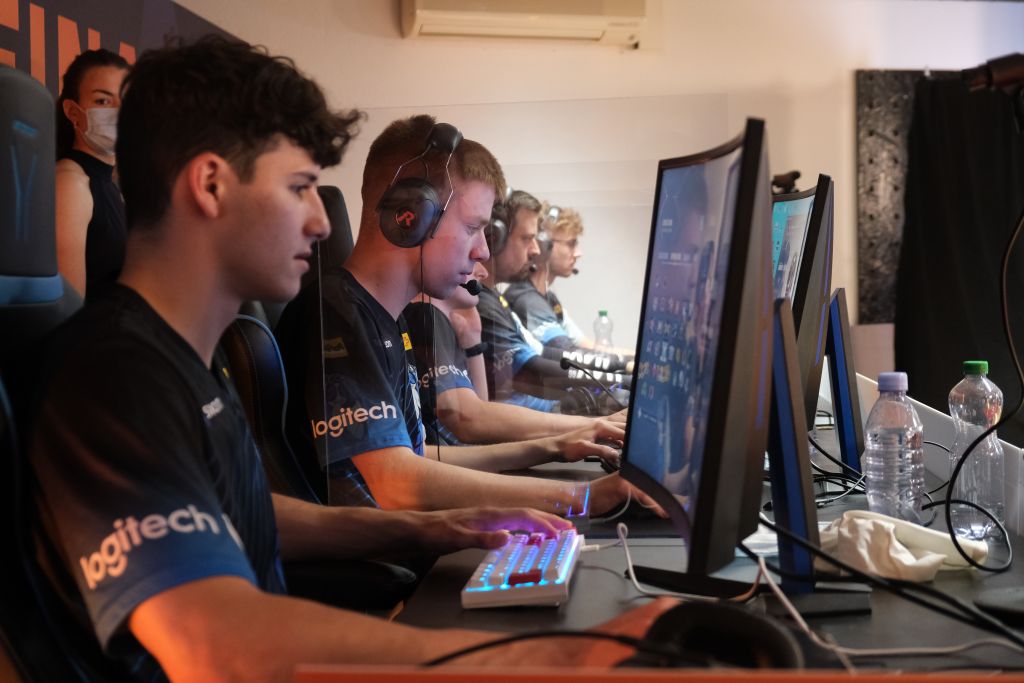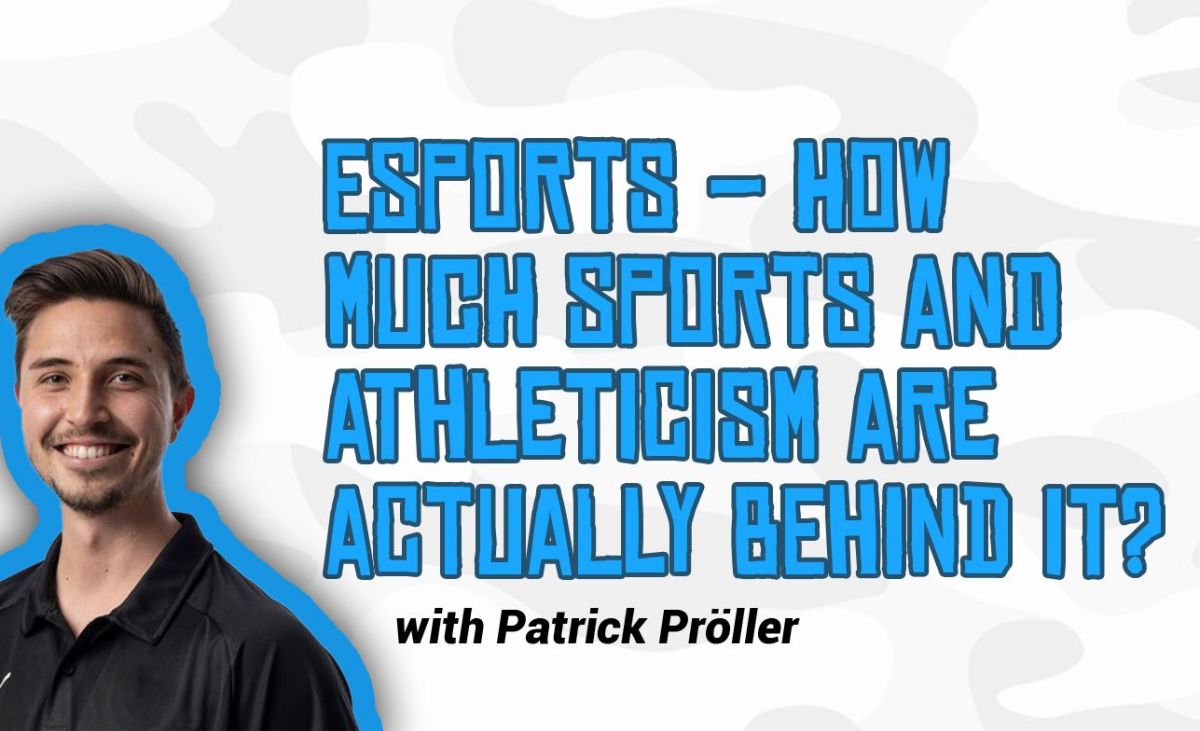If there’s talk about esports and gamers, one does probably not think of sports or athleticism. How much competitive sports are actually involved? Are the current clichés about gamers actual facts or just a myth? These potential stereotypes and/or misconceptions in regards to E-Sports and more topics will be discussed critically in this two-part Blog.
–
Outmoded concepts
–
What are the biggest misconceptions and stereotypes in esports? The answer is the same all across the board; “that players are in a bad physical shape, are antisocial, and live in their parent’s basement”. (“Heroes of the Dorm”, 2015)
This stereotypical image of esports players of them being not really physically active or social is an outdated one.
Yes, by definition many professional gamers only sit in front of their computer all day and try to improve their skills by “only” staring at a screen and pressing some buttons. But many of these gamers will tell you that the work and energy invested to improve their skill is so much bigger than you could imagine and that it’s only for those with drive!
What? You don’t believe me? You don’t share this view? Okay, then let’s go and I will present various burning facts about esports to you!
–
Facts
–
Like Kyle Bautista, COO of the CompLexity Gaming Club, explained to TNW (thenextweb, May 2019): “They train just like any traditional athlete would: 40, 60, 80 hours per week. It’s their full-time job.” It’s actually also a challenging job.
E-Sports people train on an extremely high level about 5.28 hours a day during the whole year. Approximately 1.08 hours of this daily training are physical training. More than half (55.6%) of these elite E-Sports people believe that integration of physical movement into their training has a positive effect on the performance in E-Sports! About 47.0% percent of the 115 pro gamers that were questioned do physical training to uphold their overall health. This study also shows that elite E-Sportspeople are also active since they practice more than three times the WHO-recommended daily 31 minutes (150-300 min/W) of physical activity (Kuri et al., 2016).
–
New insights
–
Sports science is currently occupying itself with the question of which physical demands E-Sportspeople are exposed to and if E-Sports can actually be considered a sport. In 2016 the German Sport University Cologne, under the supervision of Professor Ingo Froböse, studied the strain and pressure that E-Sportspeople were under. This study found that E-Sportspeople, even though they only seem to be sitting in a chair, is oftentimes bringing a lot of physical effort. “The amounts of cortisol produced are about on the same level as with race drivers. Added to this is a high pulse, sometimes up to 160 to 180 beats per minute, which is the equivalent of a very fast run, almost a marathon.” The motor abilities were especially impressive. The gamers achieved up to 400 moves per minute on the keyboard and mouse, which is four times more than the average person! This incredible hand-eye coordination (now pay attention!) is higher than in any other type of sport (Froböse et al., 2016).
This study confirms that professional gamers are “real athletes” and that’s because of many of the mentioned reasons.
Yes, esports is a sport, because otherwise, we’d have to reevaluate Darts and Chess, which classify as sports, once more.
“Esports athletes train just as hard as traditional athletes”

–
Summary
–
Summing up, it can be said that, considering the immense cognitive and physical demands and the fact of the long and frequent training, esports is definitely a sport and that gamers are actual athletes and need to stay in good physical shape to be successful in the long run!
In the second part of this blog about sports and athleticism in E-Sports, I will demonstrate what and why E-Sports people can learn from classical athletes. I also would like to point out the obvious flaws regarding the performance and health management in E-Sports. I will also explain why Team Liquid focuses on the gym and workouts and the manager of Envy, Mat Taylor, swears on specific and professional personal training and a diet.
Would you like to learn more about mental coaching, nutrition and performance? Make sure to check out our mYindset articles!
Literature:
- Kari 2016 Do E-Athletes Move?: A Study on Training and Physical Exercise in Elite E-Sports.
- https://thenextweb.com/news/esports-athletes-gym-training.
- Rudolf, K., Froböse, I., Tholl, C., Wechsler, K., & Grieben, C. (2019). Gesundheitsförderung im eSport – ein Thema für die Sportwissenschaft. In Interdisziplinäre Forschung und Gesundheitsförderung in Lebenswelten: Bewegung fördern, vernetzen, nachhaltig gestalten : Abstractband zur Jahrestagung der dvs-Kommission Gesundheit (pp. 20). Universität Hamburg.
